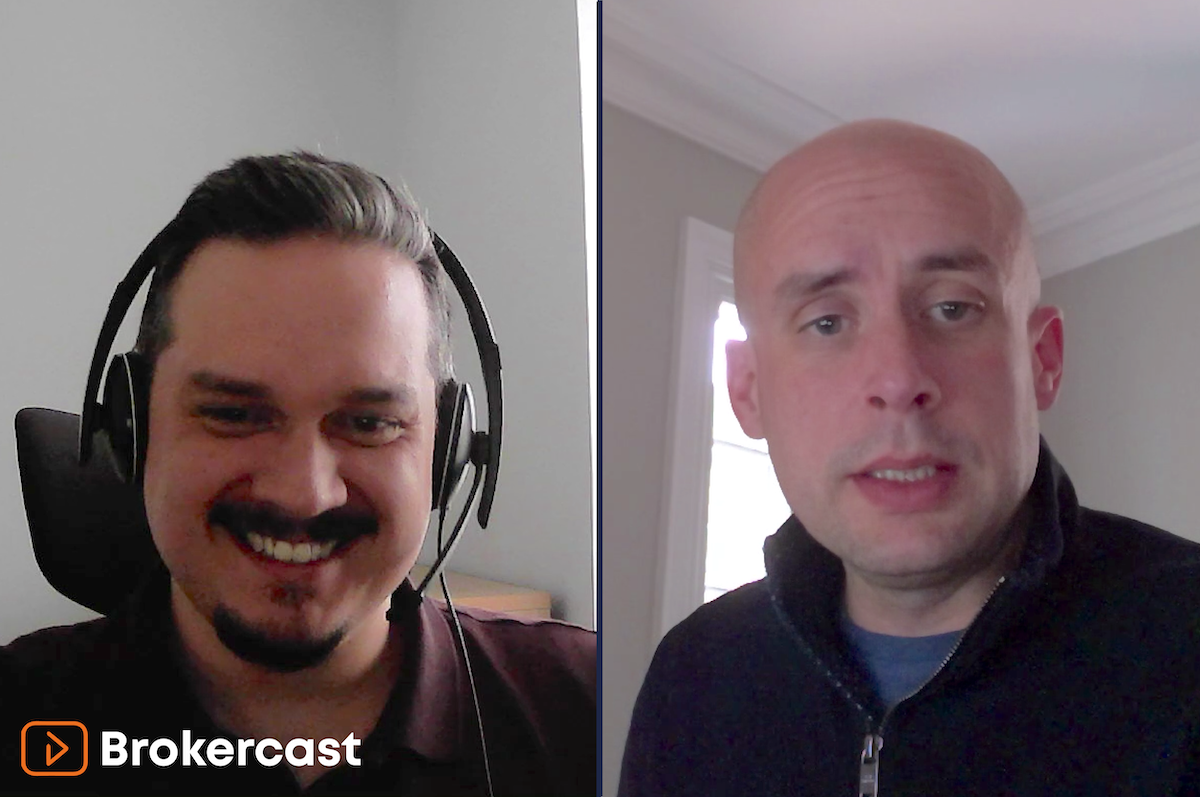In September, Allica Bank launched a specialist commercial mortgages team dedicated to supporting care homes run by independent or small group operators.
To discuss why Allica created such a team, Anthony Newman – one of our new specialist business development managers – joined Nick Baker on our sixth episode of Brokercast. They talked about challenges the growing healthcare sector is currently facing, and what sector-specific issues and nuances brokers should be aware of when dealing with care home clients.
Nick opened the discussion by asking Anthony why we are seeing so many commercial mortgage brokers start to move into the care home sector.
“There’s a mix of short and long-term factors that are creating such a strong market for brokers at the moment,” he explained. “We have an aging population and people are living longer, which has created a shortage of care beds. At the same time, covid has been a catalyst for many operators to decide to either retire or sell up.”
“From a business perspective, care homes have fared relatively well throughout the pandemic. These factors combined have seen a lot of new entrants into the sector, creating a boost in the number of transactions that brokers have been able to be involved in.”
“This, in turn, has resulted in many new brokers entering the sector for the first time, too.”
The nuances of a care home deal
With so many brokers fresh on the scene, Nick asked Anthony what differences they should be aware of compared to a more typical commercial mortgage transaction.
“Brokers need to be aware that there are several extra things to take into account when speaking to lenders about care home deals.” For example:
- Is it a purpose-built care home or a conversion? Many high-street banks these days will only consider the former.
- How many beds does it have? Allica can look at properties with anywhere from 20 beds, however high-street banks will usually only consider those with 40-50.
- What is their Care Quality Commission (CQC) rating? Most lenders will expect a minimum rating of ‘Good’.
- How experienced is the management and staff? Evidence of a strong management team and primarily permanent staffing base – rather than agency staff – will be important here.
- How future-proofed is this asset? This can be split into two categories:
- The home itself – is it a new, purpose-built home/ has it had regular investment in it? Are the room sizes sufficient? Does it have a lift? Etc
- The local area – how are the area demands changing? Is there competition from other homes or new entrants on the way?
- How many homes does the customer have? Some banks prefer customers to have multiple properties, in order to spread the risk.
Another key difference with care home transactions is how lenders judge serviceability. “They will often look at a customer from the perspective of their cash flow and their cash position when it comes to debt service, rather than a more typical EBITDA assessment.”
Ultimately, when he’s weighing up a potential proposal, Anthony said that one of the best litmus tests you can do is simply to ask yourself, “would I be happy if a loved one was staying here?”
First-time buyers
Experience of the borrower themselves is key for many lenders when considering care home opportunities, too, with many simply refusing to lend to a first-time buyer with no care home experience. In these scenarios, you will need to look at those lenders that can be more flexible and take a view of the wider picture.
“Allica, for example, will try to look at things on a case-by-case basis,” Anthony explained. “We recently approved a first-time buyer for a £700,000 commercial mortgage to acquire his first care home. He had a strong financial background and clear business acumen, but didn’t have care home experience himself.”
“The difference was that there was an incredibly experienced team at the care home running it on a day-to-day basis, and the buyer had a wide support network of care operators and experts that he could lean on, too.”
The covid bump
It’s, of course, hard to talk about care homes without mentioning the effect of the covid pandemic. Talking about how this will affect commercial mortgage applications, Anthony told Nick that the financial performance of many homes was inflated over the last year. This is thanks to the level of grant income they received, which largely outweighed any increase in costs.
As such, lenders are going to want to see a normalised picture of a care home’s financial performance and a true EBITDA position of the business. Is any uptick due to an increase in occupancy or improved cost efficiencies? If so, how can you demonstrate this? Or is it a temporary bump thanks to temporary government support.
Staffing has also been affected, Anthony highlighted. “With permanent care home staff already in such high demand, It’s important that you proactively address this issue in any proposal.”
High-street vs challenger banks
Nick then asked Anthony what made him decide to leave the high-street banking world and instead decide to work for Allica.
Anthony was clear that he was just keen to make a difference and add value to a vital sector is in need of urgent attention. “Big banks are burdened by their size. They are large, decision-making beasts that can be very inward-focused and risk conscious, which can come at a detriment to the broker and the customer.”
He explained that, despite the growth in activity in the sector, many brokers have still found lenders to be pulling out of deals, or operationally too burdened by the likes of CBILS to properly support them. That’s not been the case at Allica, however.
“I’ve been able to make an instant impact at Allica, supporting SMEs and – in particular – new entrants into the market. It’s been incredibly rewarding.”
“It’s been great, too, to work with underwriters that are just as passionate as me to lend and support care home customers.”
Closing off, Anthony highlighted the positive response Allica has had so far to the new team. “We’ve had really positive feedback about the launch of our new care home team. Not only to provide that expertise, but also because we’re so willing and ready to lend.”
“Brokers entering the market will find the demand’s certainly there. It’s just a matter of sourcing the lenders with the capacity to meet it.”





